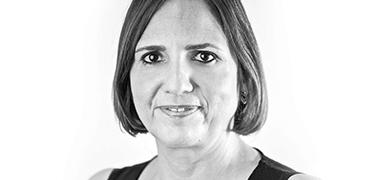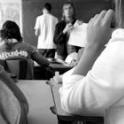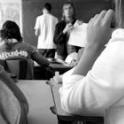We are celebrating the 10-year anniversary of Debats d’Educació by giving the educational community the opportunity to air its views

I have spent a good part of my professional life in university internationalisation. For two years I have been running the Prince of Girona Foundation devoted to providing support to young people in all aspects that are critical for their futures.
The three things I’ve learned
Education for the person, education for society
I have learned that education is a priority with two very different objectives. On one hand, it is the basis for progress, allowing knowledge and science to promote the development and improvement of society and the world we live in. But, on the other hand, and also very importantly, only education gives us tools as people to face up to the challenges life throws at us: in Shanghai, Palafrugell or wherever, education allows us, for example, to be capable of continuing to live with dignity after the death of a father, an accident to a child or the loss of a job - and sometimes all three things at ones. Without education, these life challenges bring a person to situations which leave them no way out, such as some kind of addiction or an incurable alienation. We do not always take this second objective into account.
Teaching and learning from the same world?
I have learned that the world of schools – and also vocational training and university education – needs to be an interactive mirror of society. We cannot close our eyes to what is going on, for example, in the world of technology. This should probably be generating new teaching and learning models, but it is not always easy for a teacher who is not a digital native to understand how a child who is should be learning. In the world there are surprising cases, such as that of Singapore, which has moved from the third world to the first world in a single generation: but how can a Third-World teacher educate a First-World child?
Social mobility cannot be halted once education is over!
I am absolutely convinced that education is still a lever for social mobility. However, we must bear very much in mind the fact that, once the educational stage is over, it is necessary to establish other measures to ensure continuing fairness. To mention just one example: when it comes to hiring higher education graduates, companies nearly always end up taking on staff via their network of contacts. This means young people who do not have in their most immediate family and social environment anyone with higher education to provide them with this type of contact rarely reach these jobs, which means they do not follow the path of social mobility they began with the educational process all the way to the end.















 The texts published on this website are, unless otherwise indicated, covered by the Creative Commons Spain Attribution 3.0 licence. You may copy, distribute, transmit and adapt the work, provided you attribute it (authorship, journal name, publisher) in the manner specified by the author(s) or licensor(s). The full text of the licence can be consulted here:
The texts published on this website are, unless otherwise indicated, covered by the Creative Commons Spain Attribution 3.0 licence. You may copy, distribute, transmit and adapt the work, provided you attribute it (authorship, journal name, publisher) in the manner specified by the author(s) or licensor(s). The full text of the licence can be consulted here: